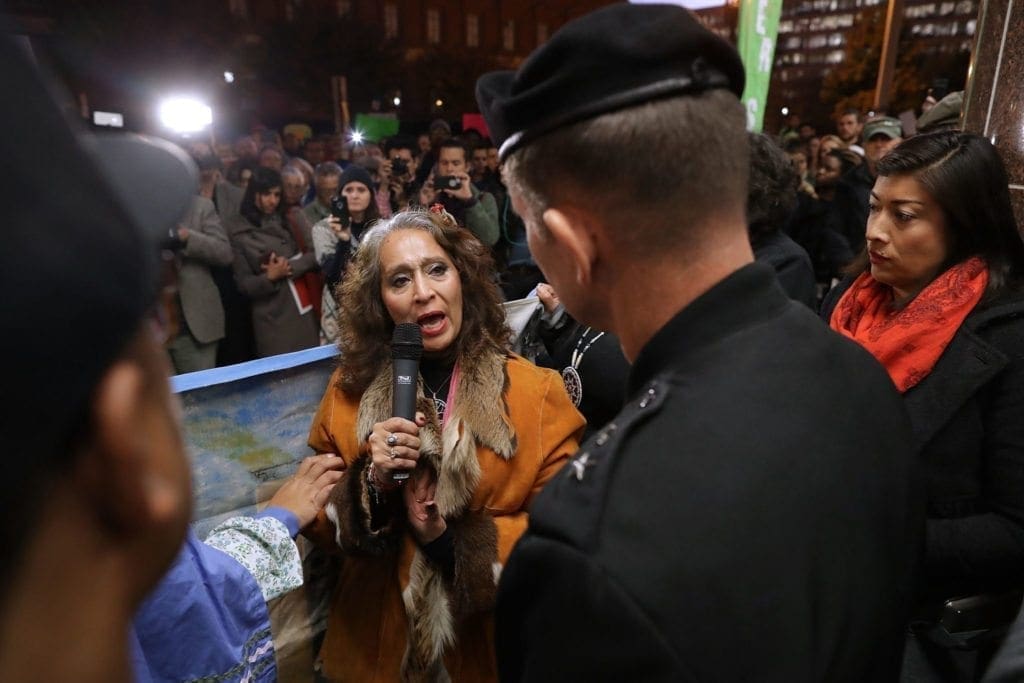All kinds of people help make sure that everyone’s human rights are respected.
These human rights defenders protect our freedom of expression, our access to health care and clean water, our ability to protest peacefully, and all of our other fundamental human rights.
Human rights are increasingly under attack in the United States and around the world. That’s why human rights defenders are needed – and that’s why Amnesty International is working to protect them.
THE PROBLEM
Individual cases
Human rights defenders face threats, intimidation and imprisonment. Governments around the world, including in the United States, prevent them from speaking out or imprison them because of their peaceful activism.
- Worldwide, at least 156 human rights defenders died in detention or were killed in 2015.
- At least 61 countries put people in prison simply for exercising their rights and freedoms.
- At least 113 countries restricted freedom of expression and the press in 2015.
The right to protest
Governments around the world have long tried to restrict people’s human right to protest peacefully, often as part of broader crackdowns on human rights. In the United States, there is a sharp increase in attempts to limit and even criminalize peaceful protest.
- Bills have been introduced in 19 states to restrict the right to protest. Read our recent letter to the Florida Legislature on HB1/SB 484.
- On the federal level, the Department of Justice and Congress may consider policies to restrict the right to protest.
AMNESTY IN ACTION
Changing lives and policies
For more than 55 years, Amnesty International has fought for – and won – the freedom of people around the world who were imprisoned for their activism, changed laws to protect human rights defenders, and ensured that activists can take to the streets to express their views peacefully.
- Our research uncovers cases of individual human rights defenders worldwide who are targeted for their activism. We launch campaigns to publicize these cases and pressure governments on individuals’ behalf. Take action in urgent cases today.
- We mobilize grassroots activists in the United States to defeat state and federal legislation that would limit people’s ability to protest peacefully. Take action to protect the right to protest in the U.S.
- We deploy trained human rights observers to monitor police response to peaceful protests in the United States.
Statistics
156
Number of human rights defenders who died in detention or were killed in 2015.
19
Number of U.S. states that have introduced bills to restrict the right to protest.
61
Number of countries that imprisoned people in 2016 for exercising their human rights.







